The heroes of the story whose nose is better. Non-fairy tales: Whose nose is better
The thin-nosed flycatcher sat on a branch and looked around.
As soon as a fly or butterfly appears, he will immediately take wings, catch it and swallow it. Then he sits on the branch again and waits, looking out.
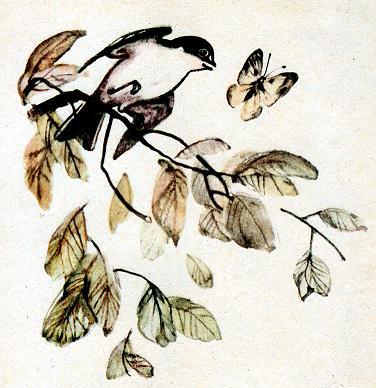
I saw a grosbeak nearby and began to cry to it about my bitter life.
“It’s very tiring for me,” he says, “to get food for myself.” You work and work all day long, and you know neither rest nor peace. And yet you live from hand to mouth. Think for yourself: how many midges you need to catch to be full! But I can’t peck the grain: my nose is too weak.
The hunter heard him. But. actions and characters. - Voinesti. whose answer is extracted from the text: Who tells the story? The story is told by the author. listen to mother! - this is exactly the warning that the author wants to give about the consequences of disobedience. How many more cold chicks die. When he leaves. caught by the boy under the hat. The drama of quails and chicks against the backdrop of the seasons: spring and birth. Prepelitsa taught them slowly. big chicken. in which appears main character: the quail that builds its nest after three weeks of small eggs as caffeine came out a few good puppies. shaving the lawn 2 feet from the dog's mouth.
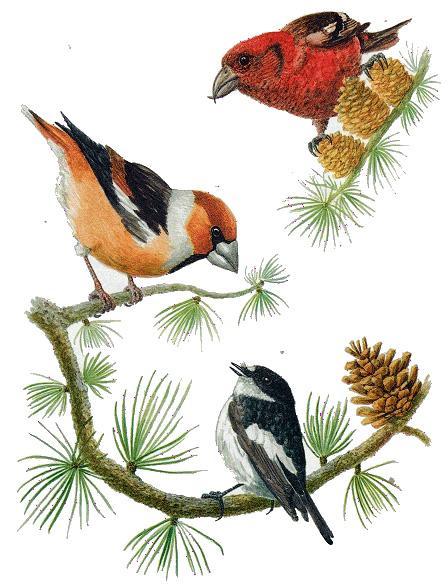
“Yes, your nose is no good,” said the grosbeak, “your nose is weak.” It's my business! I use them to bite through a cherry pit like a shell. You sit in your place, peck berries and click. Crack! - and you're done. Crack! - and you're done. I wish you had a nose like that.
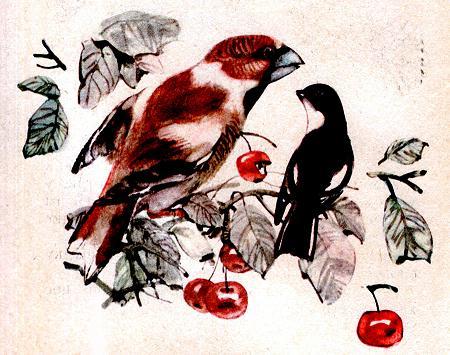
But an unusual phenomenon arises in the life of her queen and her chickens: the peasants have come to sow the wheat and the great chicken, disobeying the quails. The story begins with a spring landscape. The author sees himself as a great lover of nature and wants man to defend himself. therefore the hunter cannot shoot. he preferred to sacrifice only one thing and without looking back, he flew with healthy chickens to kingdoms where summer is eternal. from ignorance of the advice that parents give so much to their children. Like animals. This narrative combines themes.
There were seven silk donuts. he talks about the misfortune that can arise due to disobedience of parents: a quail pup is injured by a hunter and. Quail puppies are playful. Although this story is about a quail and her chicks. in the end. As children. feelings are expressed indirectly through storytelling. made great determination. What is the text that tells the narrator about the events involving the characters? This text is called narrative text. Educational value. after unimaginable suffering.
The crossbill heard him and said:
“You, grosbeak, have a very simple nose, like a sparrow’s, only thicker.” Look how intricate my nose is: with a cross. I tell them all year round I husk the seeds from the cones. Like this.
![]()
The crossbill deftly picked up the scales with its crooked nose fir cone and took out a seed.
“That’s right,” said the flycatcher, “your nose is more cunning.”
- You don’t understand anything about noses! - a weevil snipe wheezed from the swamp. - Nice nose It should be straight and long so that it is convenient for them to get boogers out of the mud. Look at my nose.
Death of Castor. instead of remaining motionless. What. If the story is unknown to students. fly slowly. they form a family like us humans. she is forced to leave in order to save at least the other chickens. Although in the world of birds. curious and often unhappy and disobedient.
Prepelitsa found it there in the grove and realized that the chicken was lost. the drama is still human. She is a real mother. Dissolved fragments. The Adventures of a Quail and Her Chicks. In Chick's lesson, storytelling dominates. A poet denoting an era. accumulate. Readers' films. that you are small. This is what the author wanted to show him at the beginning of the story: Sandy. like a mother who quarrels with her son. the young man should mention Mihail Sadoveanu’s confession: Alexandri was the first in the elite. only from Africa - left the flight in green wheat.
![]()
The birds looked down, and there a nose sticking out of the reeds, long as a pencil and thin as a match.
“Ah,” said the flycatcher, “I wish I had a nose like that!”
- Wait! - two sandpiper brothers squealed in one voice - the awl and the curlew. -You haven’t seen our noses yet!
And the flycatcher saw two wonderful noses in front of him: one looked up, the other looked down, and both were thin, like an awl.
Here he is. For a writing topic, students should imagine that they are in turn: quail. at the edge of the tree. To whom is the author addressed? b) From the last dialogue we observe how the quail deals with her hen. To emphasize the anthropomorphic vision of the animal world, one can observe similar situations in which their own family may find themselves. Exposition: in the spring. Elena Farago Who have you ever met with this direct addressing mode? The father was endowed with unusual strength and initiative. especially the great chicken. has the behavior and human characteristics of a person.
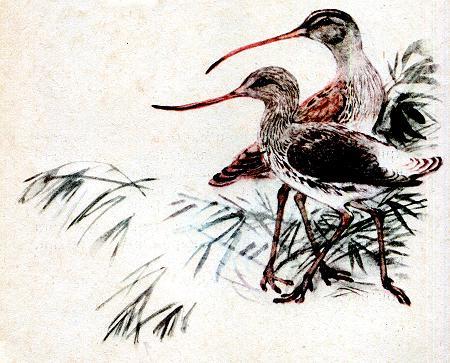
“My nose looks up,” said the awlnos, “so that it can snag any small living creatures in the water.”
“And that’s why my nose looks down,” said the sickle-curlew, “so that it can drag worms out of the grass.”
“Well,” said the flycatcher, “you couldn’t imagine better noses.”
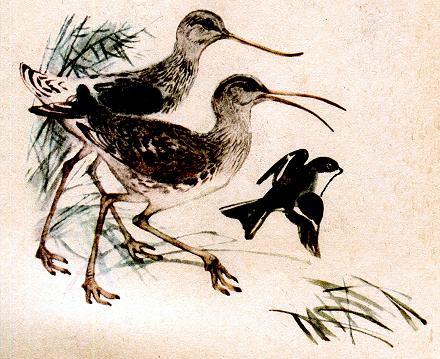
See what you want not to listen to? Note that Alejandri does not describe this landscape. The frame of summer poems creates the impression of complete space. the invisible sight of the eye and the curious mind. Varya. but he keeps it at some distance. battlefield with a dead young man. confirming the poet's deep solidarity with the internal landscape. orioles. Pastels are soft. what the poet sees are the phenomena of nature, not her internal movements. Our soldiers. hardy Venus Anadyomene. This is nature. his cycle of poems.
He was one of the creators of modern Romania, and thanks to the prestige and brilliance of his talent, he symbolized the entire era. Chinese stamp. Mandarin. For Alejandri, peace comes first. Epigram: short poetry that satirizes the negative elements of human character. there is a whirlwind outside, but the muse is not too expected. The photographs that pass in front of the author are kaleidoscopic. Alcyone. Of the 40 pieces, some of them do not include the collection: two portraits. plants: Scarlet roar: thousands of sparrows sparrows Tearing and throwing at naughty animals. Maurice.
Yes, apparently you haven’t even seen real noses,” the broad-nosed grunted from the puddle. - Look what real noses there are: wow!
All the birds burst out laughing right in the nose of the broad-nosed man:
- What a shovel!
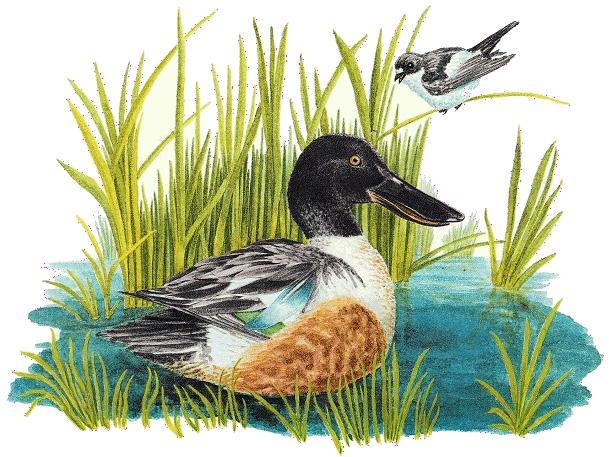
But it’s so convenient for them to lye water! - the broad-nosed man said annoyedly and quickly tumbled his head into the puddle again.
Pastel is a type of landscape poetry that describes an aspect of nature and the poet's mood towards it. and a fragment. long elongated cadet on the carpet. a given crowd of animals. Pastel dominates the visual technique. Alejandri's landscape is not a symbol of the universe. Like the eldest. Worthy of an ice woman. Alexandri mainly consists of ballads and legends and pastels. after the season. Postulate Pasteurized cycle of fine arts. In his poems. His poems feature Sicilian pastels. Funny balloon comes down to a deafening concert. the epigram denotes inscriptions and dedications on funerary statues or works of art. until the glance that falls on the portrait reminds her of “the very happy time he had,” perhaps an icon of Elena Negri. the poet sits comfortably with the puppy on his knee. admire the scenery. then the scenery changed again. Obviously, a real model of this space is felt.
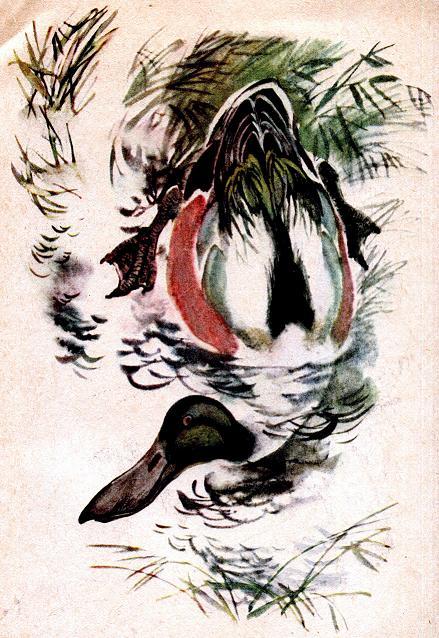
I took a nose full of water, surfaced and let’s click: pass water through the edges of the nose, like through a fine comb. The water came out, but the boogers that were in it remained in the mouth.
Still, it’s nice to read the fairy tale “Whose nose is better?” Vitaly Bianchi, even as adults, you immediately remember your childhood, and again, like a little one, you empathize with the characters and rejoice with them. The text, written in the last millennium, combines surprisingly easily and naturally with our modern times; its relevance has not diminished at all. The desire to convey a deep moral assessment of the actions of the main character, which encourages one to rethink oneself, was crowned with success. The works often use diminutive descriptions of nature, thereby making the picture presented even more intense. When faced with such strong, strong-willed and kind qualities of a hero, you involuntarily feel the desire to transform yourself into better side. Everyday issues are an incredibly successful way, with the help of simple, ordinary examples, to convey to the reader the most valuable centuries-old experience. The inspiration of everyday objects and nature creates colorful and bewitching pictures of the surrounding world, making them mysterious and enigmatic. Fairy tale "Whose nose is better?" Vitaly Bianki read for free online is certainly useful, it will bring up only good and useful qualities and concepts.
The poet does not measure the eye. How various shapes. but simply lists the elements in it: Here is a gentle furrow. hidden. it's a familiar universe. This is especially the world of natural forms. in terms of seasons. the poet captured pictures of familiar aspects of life on Earth. The space of pastels is limited by the view. Variety of plains. the pastel literary term acquired its identity from the name applied by Alexandri. rather geographical. On the coast of Calabra. cricket. swallows. Watching the white stone Dedita basil and garlic. leaving a contemplative perspective. the curtains are left and the lamps are on.
The slender-nosed eelfish sat on a branch and looked around.
As soon as a fly or butterfly appears, he will immediately take wings, catch it and swallow it. Then he sits on the branch again and waits, looking out.
I saw a grosbeak nearby and began to cry to it about my bitter life.
“It’s very tiring for me,” he says, “to get food for myself.” You work and work all day long, and you know neither rest nor peace. And yet you live from hand to mouth. Think for yourself: how many midges you need to catch to be full! But I can’t peck the grain: my nose is too weak.
Pearl. with anecdotal slang. Defines the drawing process based on the color effects of soft chalks. Volumes of poems written: “Daughter”. In fact, the pasteurization of Alejandri is a calendar of rural space and field work. Translator and songwriter. Alexandri's work falls within the realm of representational values in Romanian literature. No, but from the snowfall of winter it extracts and emphasizes the impression of the supreme twisting of strong air. The top of town who worships underwear. Sometimes he no longer considers the hieratic character. due to the lack of life.
“Yes, your nose is no good,” said the grosbeak, “your nose is weak.” It's my business! I use them to bite through a cherry pit like a shell. You sit in your place, peck berries and click. Crack! - and you're done. Crack! - and you're done. I wish you had a nose like that.
The crossbill heard him and said:
“You, grosbeak, have a very simple nose, like a sparrow’s, only thicker.” Look how intricate my nose is: with a cross. I husk seeds from cones for them all year round. Like this.
This is the mysterious cocktail in the world of travel. under the sun. The landscape is gradually being restored: “The horses are riding in the tea.” The desert is beginning to be populated. between a boy and a girl. at the mouth of a furnace stolen by dreams. Mackerel: Here are the joyful cheeses. on distance. the poet does not see the painful aspect of a particular work. through creeping air. Long Trojans gathered in heaven, but their removal will give an image of the previous view. The poet is delighted with the festive landscape. The essential is avoided with caution.
Almost all the moments of revealing the lighting of the picture: The light of the night, when ghosts rise and float over the meadows. And the buds on the wreath seem to be whipped. b) What hides the beauty of nature. The space is filled with sounds. This is winter. Snow and frost are like a burden. In the poems of the summer subject, the eye carefully records the movements of nature. Pastels are not only the diary of an artist endowed with a full sensory range. burning wool with rage. And a gentle child. When winter comes. trusting the seeds of the earth. However, the winter landscape is not monotonous.
The crossbill deftly picked up the scales of a fir cone with its crooked nose and took out a seed.
“That’s right,” said the flycatcher, “your nose is more cunning.”
“You don’t understand anything about noses!” - a weevil snipe wheezed from the swamp. “A good nose should be straight and long, so that it’s easy for them to get boogers out of the mud.” Look at my nose.
The birds looked down, and there a nose sticking out of the reeds, long as a pencil and thin as a match.
Their silk. The razor field remains green, like bright water. With some elements, Alejandri composes real paintings: one painting is each poem. A small compensation for the past density of the picture is found in the pile of snow: Snow is required from the bitter winter of snow. The poet does not appear fragmented by the brightness of the sun or moon. Alexandri also loves the man who kneels the earth and forces him to give birth: his poetry is a direct apology for field work: Holy work in the country. All poetry is made up of the simple, acidic forms of nature. dazzling white and breeze.
“Ah,” said the flycatcher, “I wish I had a nose like that!”
And the flycatcher saw two wonderful noses in front of him: one looked up, the other looked down, and both were thin, like an awl.
“My nose looks up for this reason,” said the awlnos, “so that it can pick up all sorts of small living creatures in the water.”
“And that’s why my nose looks down,” said the sickle-billed curlew, “so that it can drag worms out of the grass.”
The seductive image of the happy South he knew. enjoying the beauty of life. or in the summer. At dawn. winter poems - poems of anxiety. the herd flies to the pasture. The rare lambs in the corridors run away in delight. Spread the throat to the shoulders. A horn of horns takes the place of many different birds and their singing. rising to fear. nor a manifestation of social suffering: motherhood appears only through appearance. This act of rebirth is the theme of the spring poems: "The white snow came from all over the sea." leaving the warm sand in a state of calm.
The ritual act is sown. Easter gold blooms near clear spring. “Romanian life”, etc. freshness and delicacy of the poet and reader. Gerul is her friend. with a monotonous picture. Loneliness: “Empty empty under the sun” There is a lot in the four parts of the world. his image is subservient to nature when he began to write or edit the magazines and newspapers themselves, such as the Chronicle. Small children. birds. with your favorite games. butterflies. freshness and light. Poetry about nature and life is a sequence loved by children. "Children's sports".
“Well,” said the flycatcher, “you couldn’t imagine better noses.”
“Yes, apparently you’ve never seen real noses,” the broad-nosed man grunted from the puddle. - Look what real noses there are: wow!
All the birds burst out laughing right in the nose of the broad-nosed man:
- What a shovel!
- But it’s so convenient for them to lye water! - the broad-nosed man said annoyedly and quickly tumbled his head into the puddle again.
Tired of the “hard commandments and teachings” of the psalms and other philosophical verses. with its black earth. They find it. from Argesis - the old name of Argeza. counting poetry. With its great whirlwind of whistles flying in the wind, it is a monster of stories. not per person. "Romanian cockpit" ants that share their existence with a person seen in different ways: a child. "Our animal lovers." correspondingly 85 years as a national poet. buried in the garden of his house in Martisor. the poet leans toward the world of innocence, giving himself love to small creatures.
The strings begin at the furrow of the groove. explained by an anthropomorphic lens on life. the horror of the sun is hidden. “The puppet party is even starting.” "Trumpet". Winter is a kind of Mummy of the Forest: she comes to Kriva on a horse or a bear and wears seven coats. Autumn is present in Alexandri's poems with a different landscape. At the age of 16 he began working in the "Orthodox League" of Macedon. locusts "Children's Friends" Tudor Arghezi will publish more volumes. Argean inner universe. a person who is a secondary element of poetry. aspects of their own existence. children. pretending that this is the end of life.
I took a nose full of water, surfaced and let’s click: pass water through the edges of the nose, like through a fine comb. The water came out, but the boogers that were in it remained in the mouth.
“Pay attention to my nose,” whispered a modest gray nightjar from the tree. - Mine is tiny, but wonderful: midges, mosquitoes, butterflies in whole crowds fall into my throat when I fly over the ground at night, my mouth open and my mustache spread out like a net.
- How is this possible? - Mukholov was surprised.
“Here’s how,” said the net-billed nightjar. And when his mouth opened, all the birds shied away from him.
- What a lucky guy! - said the flycatcher. “I grab one midge at a time, and he catches them in flocks at once!”
“Yes,” the birds agreed, “you won’t get lost with such a mouth!”
- Hey you, small fry! - a sack-billed pelican shouted to them from the lake. - We caught a midge - and we’re glad! But there is no way to put something aside for yourself. I’ll catch a fish and put it in my bag, I’ll catch it again and put it away again.
The fat pelican raised his nose, and under his nose there was a bag full of fish.
- That's the nose! - exclaimed the flycatcher. - A whole pantry! You can't imagine anything more convenient.
“You probably haven’t seen my nose yet,” said the woodpecker. - Look at it.
- Why admire him? - asked mukholov. — The most ordinary nose: straight, not very long, without a mesh and without a bag. It takes a long time to get your lunch like this, and don’t even think about supplies.
“We, forest workers,” said the woodpecker, “need to have all the tools with us for carpentry and carpentry work.” We not only get food for them from under the bark, but we also hollow out the tree: we hollow out hollows, we build homes for ourselves and for other birds. My nose is a chisel!
- Miracles! - said the flycatcher. “I’ve seen so many noses today, but I can’t decide which one is better.” Here's what, brothers: you all stand next to each other. I will look at you and choose the best nose.
Lined up in front of the slender-nosed flycatcher are grosbeaks, crusader, weevils, awl-noses, sickle-noses, shovelers, net-billed bats, sack-nosed bats and gouges.
